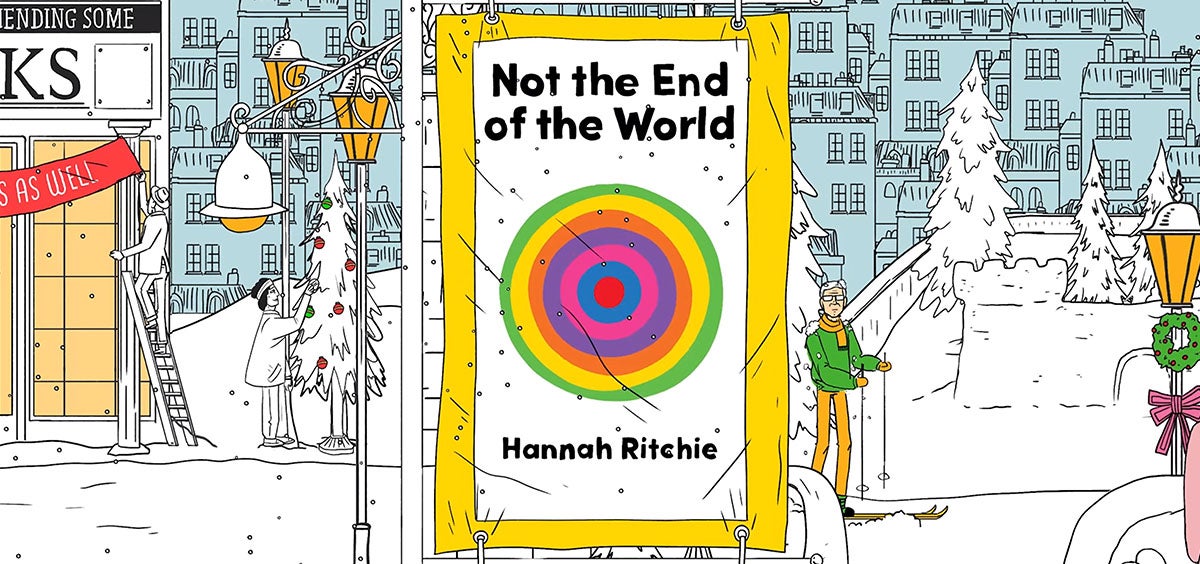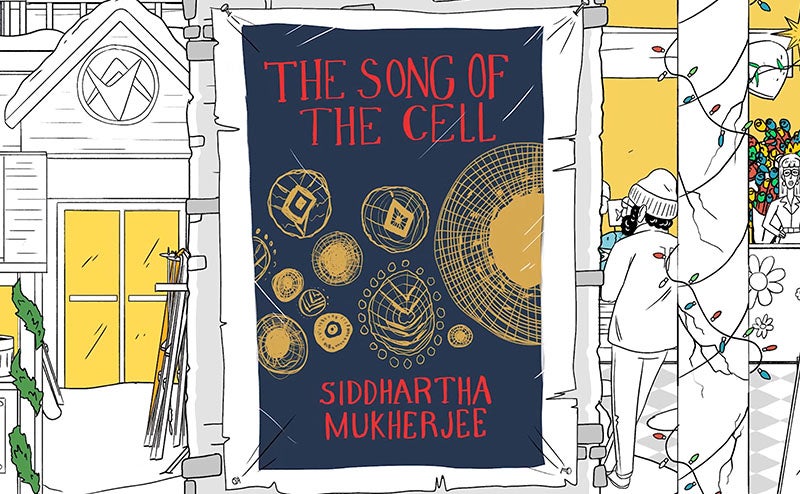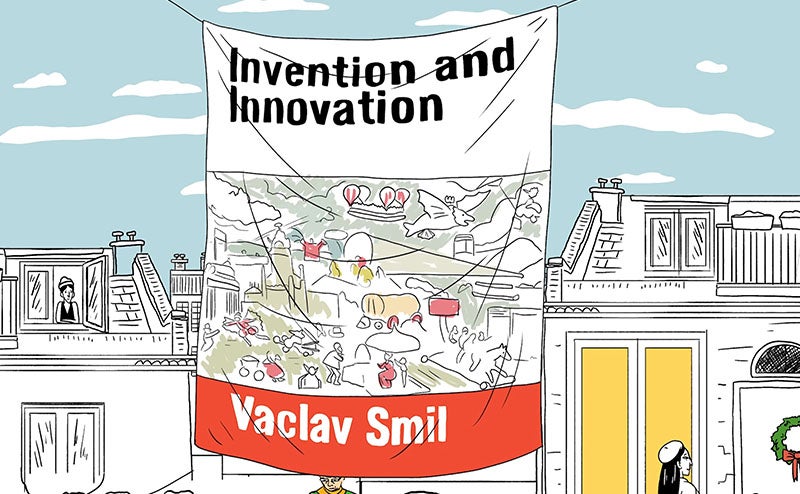When Hannah Ritchie arrived at the University of Edinburgh in 2010, she was eager to learn how to solve the world’s biggest challenges. But over the next four years, she became convinced—through college lectures and keeping up with the news—that the most existential environmental issues were only getting worse. Like so many people, including many climate activists today, she believed she was “living through humanity’s most tragic period.” By the time she graduated with a degree in environmental geoscience, Ritchie was ready to find a new career path entirely.
Fortunately, she found Hans Rosling first. A Swedish physician and statistician, Rosling was renowned for using data to prove that by so many metrics of human well-being, despite such common misconceptions otherwise, the world was making progress. His life and work have influenced my own tremendously—and just a few pages into Ritchie’s essential and hopeful new book, Not the End of the World: How We Can Be the First Generation to Build a Sustainable Planet, it became clear that she was carrying on his tremendous legacy.
Like Rosling, Ritchie has a perspective shaped less by the news than by the facts—something she’s refined through her work as lead researcher at Our World in Data, an online platform that publishes some of my favorite data-driven articles and graphics on global issues today. (The Gates Foundation is a funder.) Also like Rosling, she uses those facts to tell a surprisingly optimistic and often counterintuitive story, one that completely contradicts the doomsday-ism in most climate change conversations.
After reading her whole book—which comes out in the U.S. on January 9, 2024, and in the U.K. on January 11—I can confidently say that Ritchie has done for the environment what Rosling spent his life doing for public health and global development.
A key way she does this is by tackling a word I don’t usually love, sustainability, head-on. As she explains it, there’s a misconception that the world was once sustainable, and that it’s been getting less and less so over time. But from the UN’s definition—“meeting the needs of the present without compromising the ability of future generations to meet their own needs”—it’s clear that there are two parts to this concept. Sustainability requires making sure everyone today can live a good, healthy life and not degrading the environment in a way that takes away opportunities from people tomorrow.
Ritchie makes the case, convincingly, that the world has never been sustainable because both halves of the definition have never been achieved simultaneously.
The first half has never been achieved, period: For most of human history, half the population died before adulthood; while that statistic has improved drastically, five million kids a year still don’t make it to their fifth birthday.
Still, the progress that has been and will continue to be made on child mortality—along with six other measures of human well-being including hunger, maternal mortality, life expectancy, education, extreme poverty, and access to basic resources like clean water, energy, and sanitation—is why Hannah argues there is no better time to be alive than the present. That doesn’t negate the violence and instability we see around the world. But compared to the past, we’re closer than we’ve ever been to meeting the needs of people today and achieving the first half of the definition.
As for the second half, Ritchie analyzes seven big environmental problems we face today: air pollution, climate change, deforestation, food, biodiversity loss, ocean plastics, and overfishing. On most of these fronts, things are worse today than they were in the distant past. But on all of them, progress has been made recently, and we’re on a better trajectory than most people assume—even though that rarely makes the end-of-the-world headlines dominating the news.
In the United Kingdom, where Ritchie lives, individual carbon footprints are down to 1850s levels after peaking in the 1960s thanks to much more energy-efficient technologies and much less coal. In rich countries, per capita emissions are falling, and worldwide, we hit peak per capita emissions in 2012. The other “peaks” that people have been told to dread—peak population, peak fertilizer and agricultural land use, peak whaling, peak deforestation of the Amazon—are either already behind us or will be soon. Across many regions, threatened wildlife species are repopulating. Electricity, which too many of the world’s poorest live without, was cheaper across the board in 2019 than it was in 2009—and in that decade, solar and wind went from the priciest per unit to the cheapest. And on, and on, and on.
That doesn’t mean things aren’t bad, or there is no reason to worry. For example, air pollution globally still kills nine million people a year. And if we don’t get serious about combating climate change and dramatically reducing emissions, the consequences for people and the planet will be disastrous. The world is bad, but much better: Those two things can be true at once. So can a third: “The world can be much better.”
In each chapter, Ritchie provides tangible action that people, companies, and governments can take to build that better world—one where trade-offs between human well-being and environmental protection, between life today and life tomorrow, no longer have to be made. She also assigns responsibility to rich countries, the ones that built their wealth on fossil fuels, to continue investing in clean energy, making it cheaper, eliminating Green Premiums, and deploying those innovations to poor countries that otherwise can’t be expected to “leapfrog a long fossil-powered development path.” I couldn’t agree more.
I’ve written my own book on climate change, and I work on clean solutions daily with Breakthrough Energy. Still, I was surprised by how much Ritchie’s book—filled with all the numbers and charts a math nerd could dream of—managed to surprise me. I think everyone who reads it will feel the same, even those who consider themselves tuned in to environmental issues.
The reality is that it’s easier to track breaking news than trend lines. But if we don’t zoom out and look at the larger picture, we don’t just miss out on learning that progress has been made. We miss out on learning how. That’s why so many people’s intuitions on issues like lab-grown meat, dense cities, and nuclear energy—all pretty good for the planet—are, in Ritchie’s words, “so off.”
Perhaps that’s also why so many people believe the world is ending—and why even those who do believe we can build a better one don’t know where to start.
My recommendation? This book.




